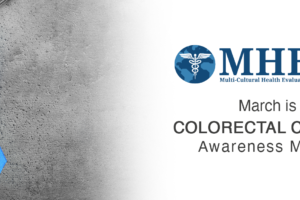
April is National Minority Health Month, a time to talk about the health problems faced by minority communities and promote fair access to healthcare services. This yearly event is important for raising awareness and fighting for the well-being of everyone, no matter their race or ethnicity.
What Are Health Disparities?
Health disparities are differences in health outcomes and access to healthcare among different population groups. These differences can be caused by things like income, environment, education, and access to healthcare. Minority communities often face big challenges in achieving good health, including:
- Limited access to quality healthcare
- Higher rates of chronic diseases
- Social factors that negatively impact their well-being
Examples of Health Disparities
One key area where health disparities are clear is in chronic diseases such as:
- Diabetes
- High blood pressure
- Heart disease
According to the CDC, African Americans, Hispanics, and Native Americans are more likely to have these conditions. Minority communities also often experience higher rates of certain cancers and lower survival rates due to delayed diagnosis and limited access to treatment.
Promoting Fair Access to Healthcare
To address these health disparities, we need to promote fair access to healthcare services. This means making sure that all individuals, no matter their background, have the chance to receive quality healthcare. One way to achieve this is by providing accessible and affordable primary care services, especially family care.
The Importance of Primary Care – Family
Primary care, especially family care, is a key part of fair healthcare. Family care providers are often deeply connected to the communities they serve, allowing them to:
- Build strong relationships with patients
- Understand the specific challenges their patients face
By offering a wide range of services, including:
- Preventive care
- Chronic disease management
- Mental health support
Family care providers can help reduce health disparities and improve health outcomes for minority populations.
Educating Patients for Better Health
In addition to providing medical care, family care providers also play a vital role in educating patients about:
- Healthy lifestyle choices
- Disease prevention
- The importance of regular check-ups
By giving individuals knowledge and resources, they can take control of their health and make informed decisions that lead to better outcomes.
Working Towards Health Equity
National Minority Health Month is a chance to think about the progress made in addressing health disparities and to recommit to the goal of achieving health equity for all. By raising awareness, promoting fair access to healthcare services, and highlighting the importance of primary care, especially family care, we can work towards a future where everyone has the chance to lead a healthy and fulfilling life.
Together, we can make a difference and ensure that minority health truly matters.
Want to get a head start on your health? Call MHEDS at 814-453-6229 (Peach Street) or 814-616-7730 (John F. Kennedy Center).
Disclaimer
Our health information does not replace the advice of a doctor. Please be advised that this information is made available to assist the public in learning more about their health. MHEDS’ providers may not see and/or treat all topics found herein.
Sources
- Centers for Disease Control and Prevention (CDC). “Health Disparities.” CDC, 2023. www.cdc.gov/healthyyouth/disparities/index.htm
- National Institutes of Health (NIH). “Minority Health & Health Disparities.” NIH, 2023. www.nimhd.nih.gov/
- American Academy of Family Physicians (AAFP). “The Importance of Primary Care.” AAFP, 2023. www.aafp.org/about/policies/all/primary-care.html








